One click. Lifelong care.
Affordable health insurance designed to protect you and your family, always.
Family Floater
A single shared sum insured among all covered family members.
| Types of Plans | Ideal Health Insurance Sum Insured | ||
|---|---|---|---|
| Tier-1 City | Tier-2 City | Tier-3 City | |
| Individual Health Insurance Plan | ₹10 lakh & above | ₹5-10 lakh | ₹5 lakh |
| Family Floater Health Insurance Plan | ₹30 lakh & above | ₹20 lakh & above | ₹10 lakh & above |
| Senior Citizen Health Insurance Plan | ₹20 lakh & above | ₹15 lakh & above | ₹10 lakh & above |
Types of Health Insurance
Individual Health Insurance Plan
Policy that covers a single person in case of hospitalisation and medical bills.
Eligibility - Individuals
Family Floater Health Insurance Plan
Policy that covers multiple family members under a single plan
Eligibility - Family (including spouse, parents and children)
Senior Citizen Health Insurance Plan
Policy that covers individuals above the age of 65 years
Eligibility - Individuals above the age of 65 years
Critical Illness Insurance Plan
Policy covering an individual for expensive treatment of critical illnesses such as cancer
Eligibility - Individuals
Group Health Insurance Plan
Policies that usually covers a group of people within an organisation or corporate structure
Eligibility - Group of people such as within a corporate ecosystem
Top-Up Health Insurance Plan
Policies that help individuals, groups, or family to upgrade their plan and provide additional coverage at a certain additional cost
Eligibility - Everyone (individuals, group, family)
Maternity Health Insurance Plan
Policies for individuals/mothers to cover expenses during prenatal, delivery, and post-natal stage
Eligibility - Individuals
Key Benefits of Health Insurance Plans in India
Covers pre- and post-hospitalisation charges
A health insurance policy covers your medical expenses end-to-end. The coverage starts from just before hospitalisation to after hospitalisation.
Covers complete On-patient Demand (OPD) Expenses
Most of the health insurance plans are tailored to cover the expenses for your OPD expenses from teleconsultation with doctor to routine diagnostics. However, the terms may vary depending on the insurer.
Cashless Hospitalisation
At the time of need, you simply need to visit a nearby network hospital that has tie-ups with your insurer to avail cashless hospitalisation. This feature becomes beneficial when you require immediate treatment with the worry of fund arrangement.
Covers pre-existing diseases
After the completion of your waiting period as mentioned in your policy certificate, a health insurance policy covers you for your pre-existing diseases as well.
Add-on Benefits
The coverage of health insurance can be further extended by including add-ons such as critical illnesses, maternity, accidental death benefits. However, the premium of the insurance may rise depending on the add-ons.
Provides Tax Benefits Under Section 80D
Having a health insurance plan also provides tax benefits under Section 80D of the Income Tax Act, 1961. You can claim up to INR 75,000* per year depending on the type of plan you buy.
Health Insurance buying checklist
Health Insurance buying checklist
Waiting Period
Co-payment
Preventive Health Check-up
Grace Period
Restore Benefits
No Claim Bonus
Sub-limits
Network Hospitals
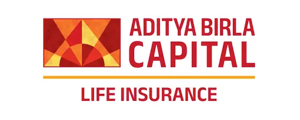
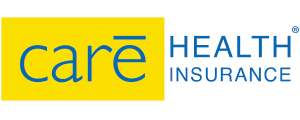

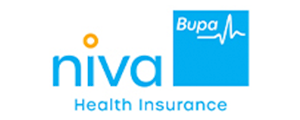


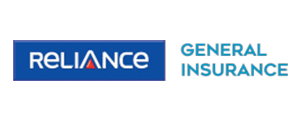
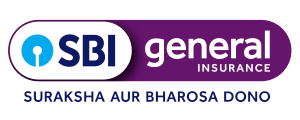
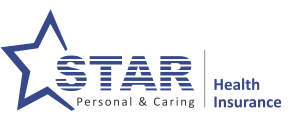
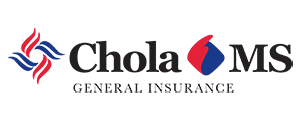

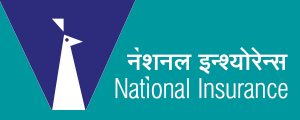




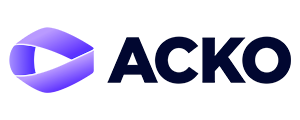

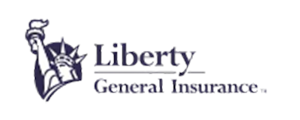

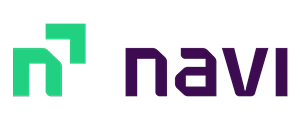
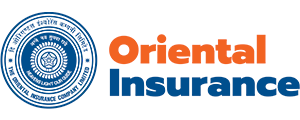
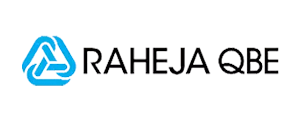
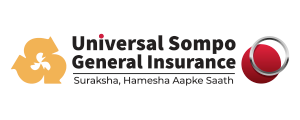

How to File a Health Insurance Claim?
Reimbursement Claims
For the treatments availed in non-network hospitals, the policyholder can file a claim for reimbursement of the treatment charges. Once the treatment is completed, the insured needs to settle the bill, collect all the documents, and submit them to file a claim with the insurer or the TPA for reimbursement.
Cashless Claims
If the treatment is availed in a network hospital of the insurer, then the policyholder will be eligible to avail cashless treatment services. Once the treatment is completed the insurance company settles the bill directly with the hospital.
For both cashless and reimbursement claims, the procedure for planned and emergency hospitalization may vary as given below
In Case of Planned Hospitalization
- You need to inform the insurer at least 48 hours before the treatment.
- Once you get the approval from the TPA/insurer, you can then file for reimbursement or cashless claims on submission of the claim form.
- Also, submit other related documents like medical bills, reports, discharge summary, etc.
- Once the approval is provided, the claim amount is paid to you by the insurer in case of reimbursement claims.
- In the case of cashless claims, the hospital bill is directly settled by the insurer.
In Case of Emergency Hospitalization
- You need to inform the insurer within 24 hours of getting hospitalized.
- Showcase your health card at the hospital.
- Submit the pre-authorization form to get TPA approval for emergency hospitalization for cashless claims
- If approved, the insurer will settle the claim amount directly with the network hospital
- If you fail to get TPA approval, you will need to file for reimbursement later.
- Submit all the required documents like hospital bills, discharge bills, etc., after getting discharged from the hospital.
- After verification of documents, the claim amount will be paid to you.
Common Health Insurance Terms
AYUSH Treatment
AYUSH treatment refers to medical treatments taken through Ayurveda, Yoga & Naturopathy, Unani, Siddha and Homeopathy system of medicines. Several health insurance plans cover AYUSH treatment costs.
Bariatric Surgery
Bariatric surgery or weight-loss surgery refers to the surgery performed to treat obesity or reduce the weight of a person. A lot of health insurance policies offer coverage for bariatric surgery.
Claim
Claim refers to the request made to the insurance company by the policyholder to pay the medical expenses incurred on an illness or hospitalization under the health insurance policy. In the absence of a claim, you will have to pay for the medical expenses on your own.
Co-payment
Co-payment refers to a fixed percentage of the claim amount that the policyholder has to pay at the time of claim settlement. Opting for a co-payment can help to reduce your premium amount.
Coverage
Coverage refers to the extent of benefits available under a health insurance policy. The wider is the coverage, the more will be the benefits offered under the policy.
Cumulative Bonus
Cumulative bonus refers to an increase in the sum insured amount without a hike in premium as a reward for not raising a claim in the previous policy year.
Day Care Procedures
Day care procedures refer to those medical procedures and surgeries that are performed using advanced medical technology and require hospitalization of less than 24 hours. Almost all basic health insurance plans offer coverage for day care procedures. For example, cataract surgery.
Deductible
Deductible refers to a fixed amount that the policyholder agrees to pay towards the incurred medical expenses before raising a claim with the insurance company. It is a part of the total claim amount. Once the deductible is paid, the insurance company will pay for the remaining medical expenses claimed by the policyholder.
Dependent
Dependent refers to the family members of the policyholder who can also be covered under the same health insurance policy. It usually includes your legally wedded spouse, children, parents and parents-in-law..
Domiciliary Treatment
Domiciliary treatment refers to the medical treatment taken at home under the supervision of a medical professional in case hospital admission is not possible. This treatment is covered by health insurance plans under domiciliary hospitalization.
Entry Age
Entry age refers to the age at which a person can buy a health insurance policy. Most health insurance plans come with an entry age of 91 days to 65 years.
Exclusions
Exclusions refer to the conditions or circumstances that are not covered under a health insurance policy. Any claim arising out of an excluded medical expense or circumstance is not payable by the insurance company.
Family Floater
Family floater refers to the type of coverage where a single sum insured amount is shared by all the insured family members on a floater basis. A family floater policy is more affordable than buying an individual policy for each family member.
Free Look Period
Free look period refers to the first 30 days of buying the policy, where the policyholder can change the insurance company or cancel the policy without paying any cancellation fee. If the policy is cancelled during this period, then the premium amount is refunded to the policyholder.
Grace Period
Grace period refers to a fixed period that begins after the due date of a health policy. During this period, the policyholder can pay the due premium amount without losing the continuity benefits, such as waiting periods. Grace periods are usually of 15 days or 30 days.
Waiting Period
Waiting period refers to the time period from the commencement of the policy during which the policyholder is not allowed to make any claims. Any claims raised during this period will be rejected by the insurance company. For example, the PED waiting period, critical illnesses waiting period, etc.
Indemnity Plan
An indemnity plan is a type of insurance policy where the claim amount is paid based on actual medical expenses incurred. Under this type of plan, the policyholder has to submit the medical bills to the insurance company so that they pay the claim amount equal to the total bill amount.
Insured
Insured refers to the person who is eligible to receive medical coverage under a health insurance policy.
Insurer
Insurer refers to the insurance company that is responsible to pay for the medical expenses of the insured under a health insurance policy.
Network Hospitals
Network hospitals refer to the empanelled hospitals of the insurance company that offer the cashless hospitalization benefit to the policyholders. All insurance companies in India have a network of cashless hospitals.
No Claim Bonus
No Claim Bonus is a renewal premium discount offered by insurance companies to policyholders for not raising a claim in the previous policy year. This discount can be accumulated up to 50% for five consecutive claim-free years.
Portability
Portability refers to the procedure of changing the existing insurance company or health insurance policy without losing any continuity benefits like the waiting period. This facility is beneficial for people who are unhappy with their current insurer or policy.
Pre-existing Diseases
Pre-existing diseases refer to the diseases or medical conditions that the applicant was diagnosed with up to 4 years before buying the health policy. Most health plans cover pre-existing diseases after 2 to 4 years of waiting period.
Premium
Premium refers to the cost of an insurance policy. It is the amount paid by the policyholder at regular intervals to get insurance coverage and enjoy the benefits available under a health insurance policy.
Preventive Health Check-up
Preventive Health Check-up Preventive Health Check-up refers to a series of medical tests that are undertaken to assess the health of a person and take suitable measures to prevent the occurrence of a disease.
Restoration Benefit
Restoration benefit refers to the facility of refilling your sum insured amount before the policy renewal date in case the original amount gets exhausted on raising one or more claims.
Riders/ Add-on Covers
Riders or add-on covers refer to the additional covers that the policyholder can buy on payment of an extra premium amount to expand the coverage of a basic health insurance policy. For example, PED waiting period reduction, etc.
Room Rent Limit
Room rent limit refers to the limit up to which the insurance company will pay for the hospital room charges incurred by the policyholder. If the hospital room charges are more than the room rent limit, then the additional amount will have to be borne by the policyholder.
Sub-limits
Sub-limits Sub-limits refer to the limit set on the coverage amount of a benefit under a health insurance policy. Eg: room rent limit. In case a coverage benefit comes with a sub-limit, the insurance company will only be liable to pay up to that limit, and any additional amount will have to be paid by the policyholder.
Sum Insured
Sum insured refers to the maximum coverage amount that the insurance company will pay in a policy year. The sum insured is ascertained at the time of buying or renewing the policy.
Top Up Plan
Top up plan refers to a type of health insurance plan that offers a higher sum insured and can be bought to enhance the medical coverage of a person. However, a deductible amount needs to be paid under all top up insurance plans, which makes its premium affordable.
Underwriting
Underwriting refers to the process where an insurance company evaluates the application of a person. The underwriting team evaluates the medical history and personal details of a person to determine whether the policy should be issued and how much premium must be charged.
